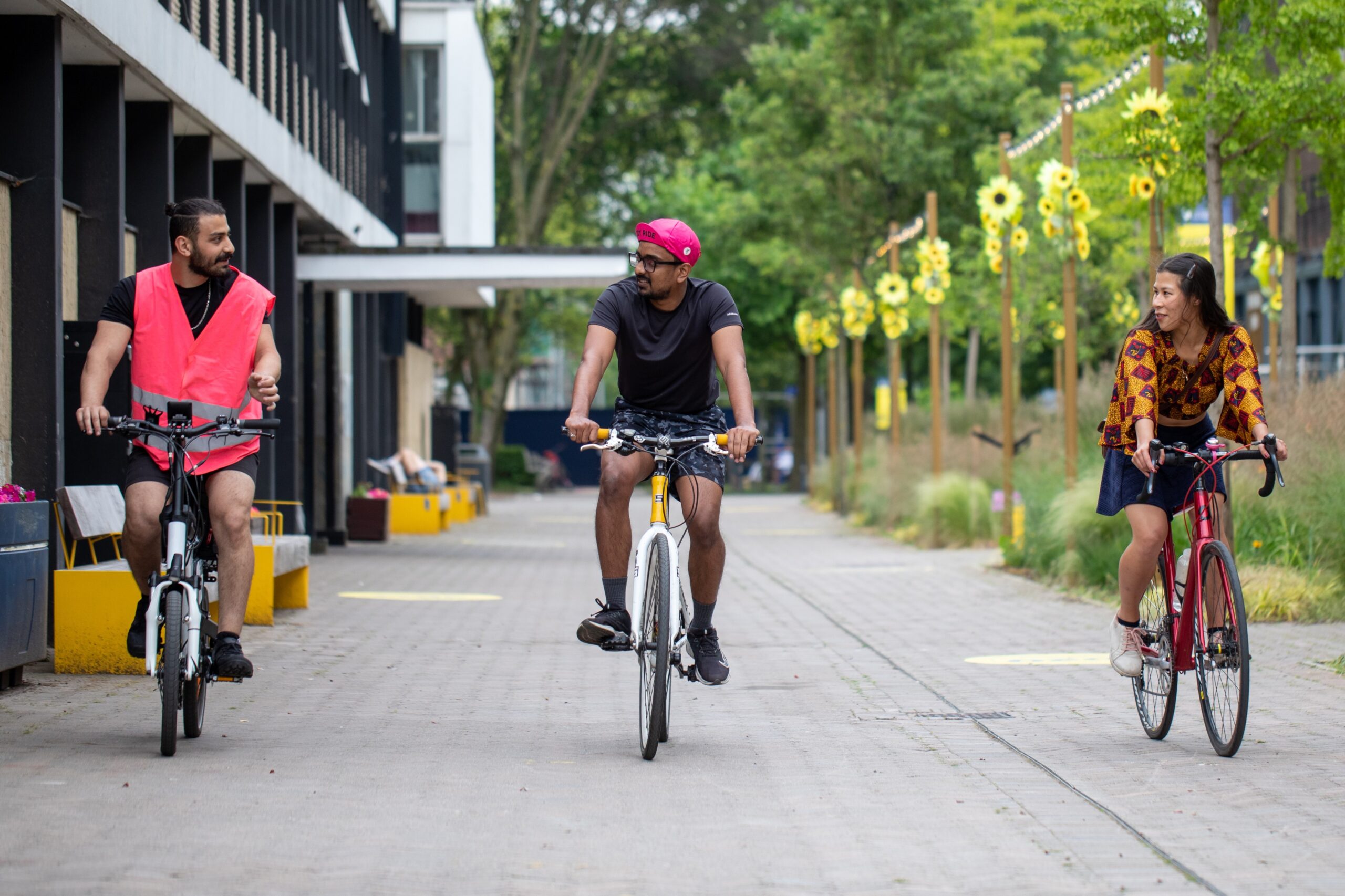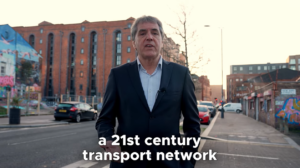Liverpool City Region Mayor Steve Rotheram, has unveiled a funding package of nearly £30m to deliver schemes which will make walking and cycling easier and safer for communities across the Liverpool City Region.
The money is being committed to active travel, highways and regeneration projects supporting sustainable transport, employment and housebuilding in Huyton, Netherton and Runcorn.
Funding for projects includes:
- £12.2m for the Huyton Active Travel corridor programme, which will see upgrades to footpaths and cycle lanes and capacity improvements at Tarbock Island roundabout linking new Halsnead Garden Village residential development with Huyton town centre and railway station.
- £12.4m to improve walking and cycling links to the vital Sefton Maritime Corridor, which links the Port of Liverpool with the planned commercial development at Atlantic Park.
- £4.9m for active travel infrastructure linked to the planned Runcorn Busway scheme as part of the regeneration of the Palacefields area, a development supported by the CA’s brownfield land fund
Investment for these schemes is to be drawn from the City Region Sustainable Transport Settlement (CRSTS), a pot of £710m set aside for major transport infrastructure projects across the Liverpool City Region.
Subject to approval at this month’s Combined Authority meeting, these schemes mark the full allocation of money from the region’s first tranche of CRSTS funding. This means focus will now turn to delivery, with construction work on these and other major projects to begin in the coming months.
Steve Rotheram, Mayor of the Liverpool City Region, said: “I want the Liverpool City Region to be the best place in the country for walking and cycling. Investing in safe, accessible active travel infrastructure is key to making that a reality.
“Today’s announcement of £30m in funding brings our total investment in the region’s active travel network to over £100m. That’s a huge commitment to transforming how people get around.
“By making it easier for people to walk or cycle, especially for shorter trips, we’re connecting our communities, supporting economic growth, cutting carbon emissions, and boosting quality of life for everyone in our region.
“This investment is another stride forward in building a world-class transport network that’s healthier, greener, and better connected for all.”
The improvements funded by this new cash boost are part of wider plans to deliver a 600km network of walking and cycling routes across the six boroughs of the Liverpool City Region – Halton, Knowsley, Liverpool, Sefton, St Helens and Wirral – with more than 260km set to be delivered by the end of 2026.
Simon O’Brien, Liverpool City Region Cycling and Walking Commissioner, said: “It is fantastic to see this new funding being committed to schemes which will make walking and cycling easier and safer across the city region.
“Linking communities, reducing carbon emissions, helping people to be healthier – projects like these give us an amazing opportunity to help change the way we think about travelling around our local area.”
Development of new active travel infrastructure is a key element of Mayor Rotheram’s plan for an integrated London-style transport system that is quick, simple, affordable, and accessible to all.
Other major investments include the purchase of more than 100 zero-emission double-decker electric buses, a £32m transport interchange for St Helens town centre, £26m for the first new Mersey Ferry in over 60 years and £100m for the new Liverpool Baltic rail station.
PIC-LIVERPOOL CITY REGION























